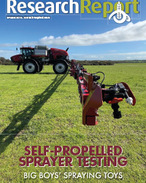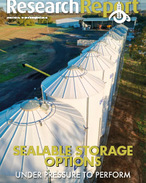This article is 4 years old. Images might not display.
The Understanding Victoria's Biosecurity System Survey seeks to understand attitudes and knowledge of Victoria's biosecurity system to improve preparations for future biosecurity challenges.
Biosecurity Services executive director Katherine Clift said farmers, businesses, industry groups and community members were invited to contribute.
"The agriculture sector contributes over $14 billion to the Victorian economy, supporting essential food supply both here in Australia and overseas, and providing thousands of jobs," Dr Clift said.
In 2020, six farms tested positive for three different strains of avian influenza in Victoria. This was the largest avian influenza outbreak recorded in Australia and the most significant biosecurity event in Victoria for the last 20 years, highlighting the importance of a strong biosecurity system.
"Timely, effective response is critical to rapid eradication of the disease, minimising the impacts on the poultry industry and maintaining the trust and confidence of consumers and trading partners."
Over the past 20 years, Australia has responded to biosecurity incursions, including Varroa mite, citrus canker and equine influenza as well as prepared for threats such as foot and mouth disease and African swine fever, all of which can have a significant economic impact.
"Managing biosecurity risks is increasingly challenging, as international and interstate migration, climate change, tourism and increased movement of goods all contribute to the risk of new incursions."
Dr Clift said government, industry and the community needed to work together to prepare for, and respond to, current and future biosecurity risks.
"Everyone has a part to play in protecting Victoria from the impacts of pests and diseases," she said.
The results from the survey will be published online and will inform the development of future biosecurity initiatives.
The online survey takes about 15 minutes to complete, and is open for submission until 11 February.
To complete the survey visit www.wmsr.com.au/agvic and for more information, visit agriculture.vic.gov.au/svbs-program























